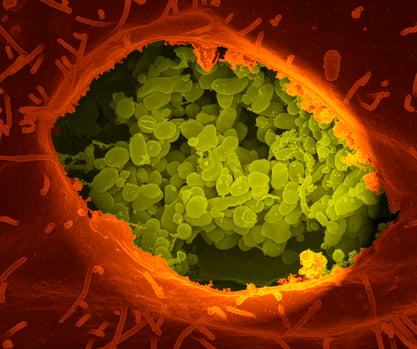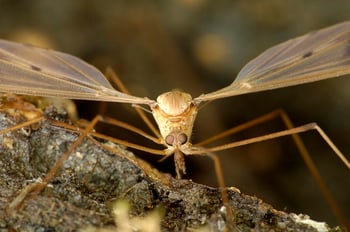
Vaccine research is a field that is constantly growing and changing, from new vaccines being created to different vaccination methods being developed. With diseases changing and new diseases emerging, researchers around the world work tirelessly to create treatments. Researchers from the College of Veterinary Medicine at the University of Georgia, Athens recently received a grant of $3.2 million from the National Institutes of Health (NIH) to continue their work developing new vaccine platforms. (Image courtesy of John Keith via Wikimedia Commons)
Read More
Tags:
University of Georgia Athens,
vaccine research,
UGA,
BioResearch Product Faire Event,
NIH funding,
NIH grant,
2018,
SAAVE
Researchers at the University of Colorado Boulder have received a $1.1 million grant from the Bill & Melinda Gates Foundation to support development of next-generation vaccines. If the project is successful, these new vaccines will be able to defend against diseases with just one shot and won't need to be refrigerated. These improvements could have an immense impact on the difficult challenge of dispensing life-saving immunizations.
Read More
Tags:
University of Colorado,
vaccine,
new research funding,
vaccine research,
University of Colorado Boulder,
Colorado,
new research grant
Q fever, an infectious disease caused by the bacteria Coxiella burnetii, is common among livestock such as cattle, sheep and goats. The bacteria can be transmitted to humans through the inhalation of barnyard dust that is contaminated with animal excretion containing the bacteria. Along with passing from livestock to humans, Q fever has been aerosolized in the past and used for biological warfare.

(Image Courtest of Wikimedia Commons and the National Institutes of Health)
Read More
Tags:
CA,
vaccine research,
infectious diseases,
NIH funding,
UCI,
UC Irvine,
2016,
BioResearch Product Faire,
Western,
Coxiella burnetii,
Q Fever

The University of California, Berkeley is a leading research institution, producing promising research in all divsions of the life sciences. To help further research in immunotherapy and cancer, researchers from the University of California, Berkeley have recently teamed up with the Berkeley-based biotech company, Aduro Biotech Inc., for a $7.5 million immunotherapy initiative. This Immunotherapeutics and Vaccine Research Initiative (IVRI) will provide three years of funding to infectious disease researchers studying new techniques for combating both infections and cancer.
Read More
Tags:
CA,
University of California Berkeley,
immunotherapy,
cancer research,
vaccine research,
Southwest,
researchers,
UC Berkeley,
new funding,
UCBerk,
2016,
BioResearch Product Faire,
Aduro Biotech
 West Nile Virus is a debilitating disease that is spread by the bite of an infected mosquito. Much like victims of malaria, and other mosquito-born pathogens, those affected by West Nile virus are at risk for serious illness or even death.
West Nile Virus is a debilitating disease that is spread by the bite of an infected mosquito. Much like victims of malaria, and other mosquito-born pathogens, those affected by West Nile virus are at risk for serious illness or even death.
Read More
Tags:
Bioresearch,
Oregon Health and Science University,
vaccine research,
infectious diseases,
Oregon,
2015,
disease research,
Research Funding,
NIH,
OR,
OHSU,
Portland,
NIH funding,
Northwest Region,
NIH grants,
BioResearch Product Faire™
Since the Human Immunodeficiany Virus (HIV) emerged as a global health problem, researchers have been diligently working to discover new vaccines to treat the disease. However, many of the current treatments for HIV tend to cause more infections and further damage instead of working as a cure.
Read More
Tags:
Emory University,
HIV,
vaccine research,
Southern,
2015,
Emory,
BioResearch Product Faire Event,
Atlanta,
GA,
AIDS vaccine research,
Yerkes National Primate Research Center
The development of successful vaccinations can be considered among the most important discoveries in medicine. It has caused significant reduction in the occurrence of several major diseases and has virtually eliminated some pathogens such as smallpox. Even with previous developments, there is always the room for improvements.
Tags:
Oregon Health Sciences University,
vaccine research,
OHSU





 West Nile Virus is a debilitating disease that is spread by the bite of an infected mosquito. Much like victims of malaria, and other mosquito-born pathogens, those affected by West Nile virus are at risk for serious illness or even death.
West Nile Virus is a debilitating disease that is spread by the bite of an infected mosquito. Much like victims of malaria, and other mosquito-born pathogens, those affected by West Nile virus are at risk for serious illness or even death.